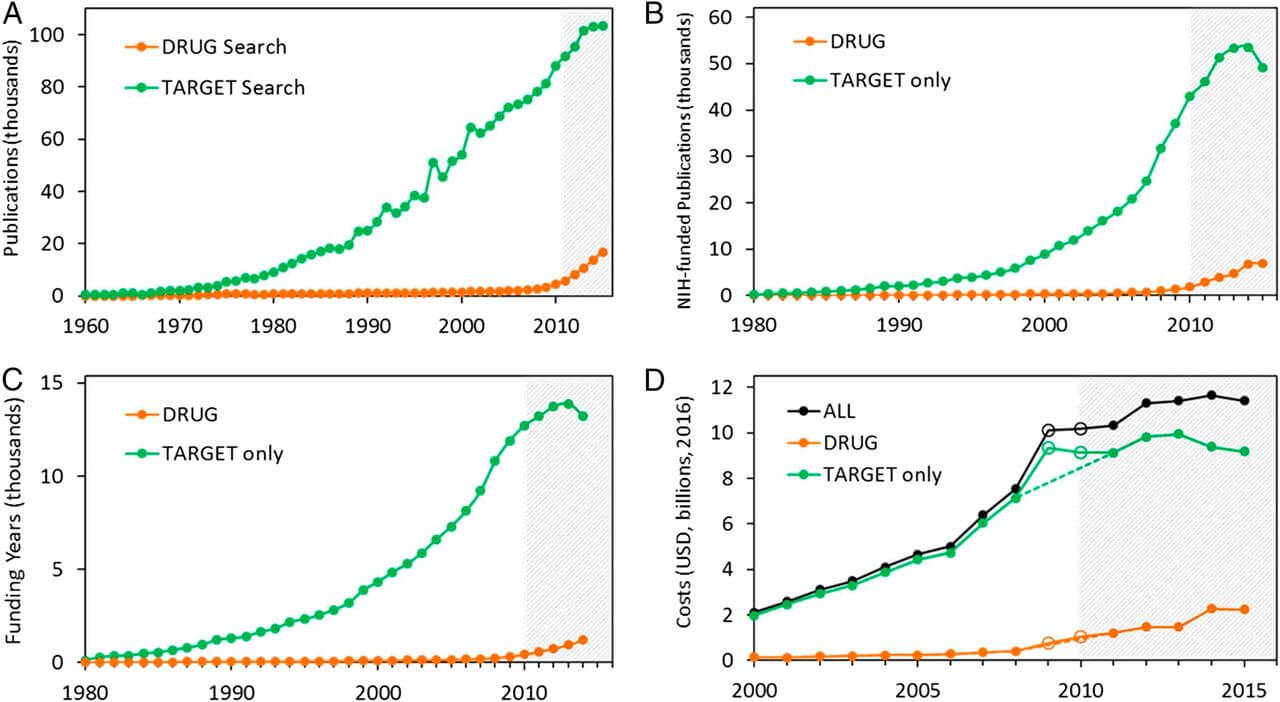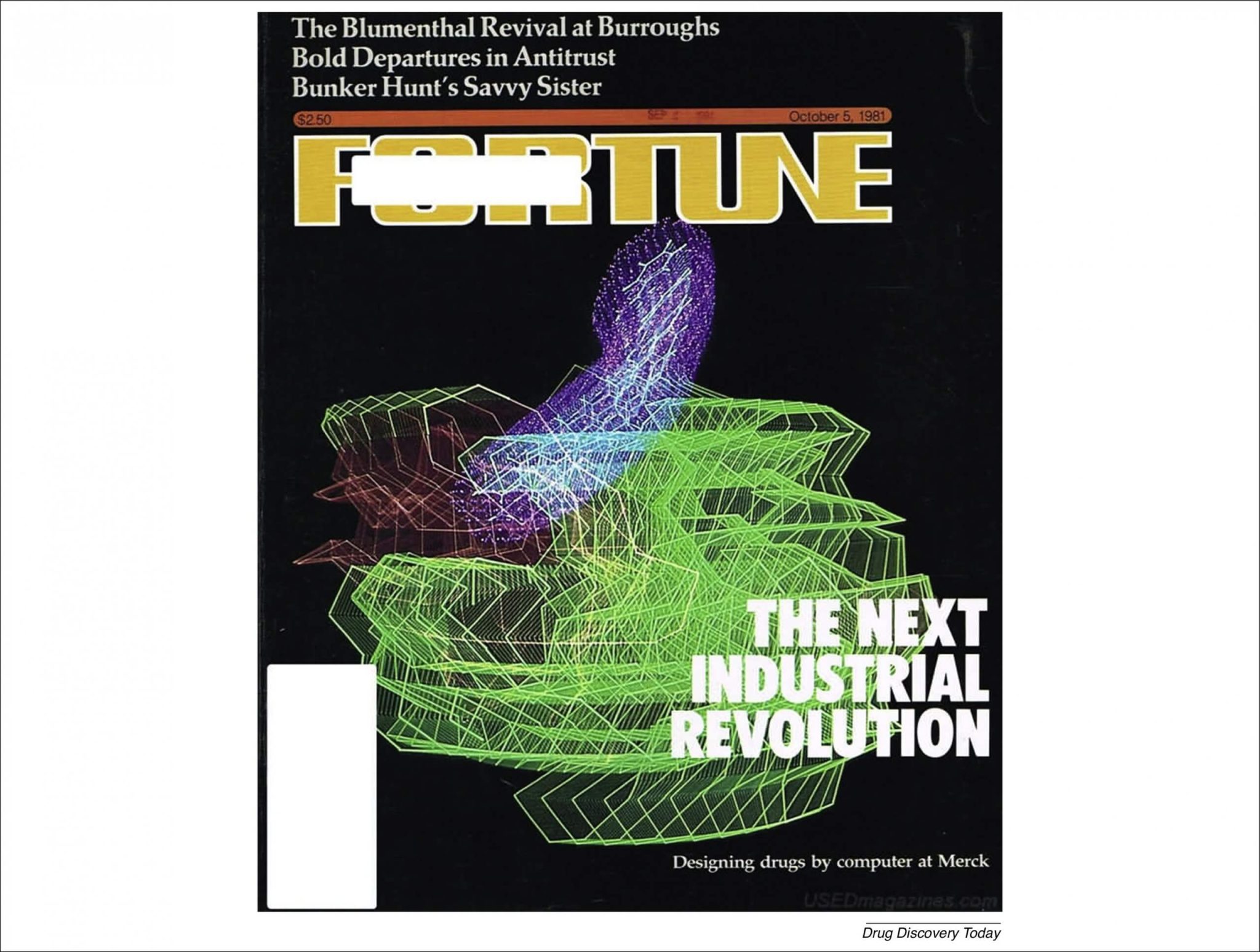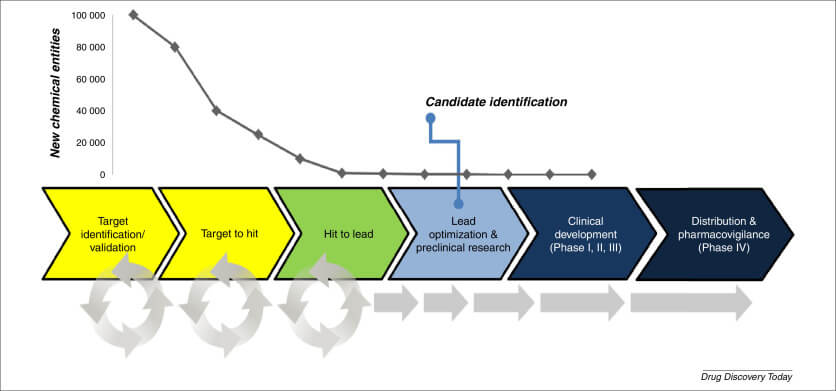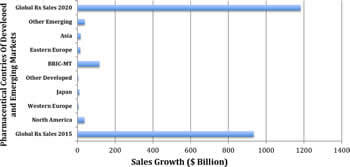In the ever-evolving pharmaceutical industry, finding a reliable Active Pharmaceutical Ingredient (API) supplier is crucial for the success of your business. Whether you’re a pharmaceutical manufacturer, a research institution, or a healthcare provider, the quality and consistency of your APIs can make or break your products and reputation. This comprehensive guide will walk you through the essential steps and considerations for identifying and partnering with a reputable API supplier.
Understanding the Importance of API Suppliers
Before we dive into the nitty-gritty of finding a reputable API supplier, let’s take a moment to appreciate the significance of these crucial partners in the pharmaceutical supply chain. APIs are the heart and soul of any medication, responsible for the therapeutic effects that patients rely on. A high-quality API can mean the difference between an effective treatment and a potentially harmful product.
“The quality of an API is directly proportional to the safety and efficacy of the final drug product. Choosing the right API supplier is not just a business decision; it’s a commitment to patient health and well-being.”
Dr. Sarah Johnson, a renowned pharmaceutical quality assurance expert, emphasizes the critical nature of API selection. Her words serve as a stark reminder of the responsibility that lies on the shoulders of those in the pharmaceutical industry.
The Global API Market Landscape
To truly appreciate the challenge of finding a reputable API supplier, we need to understand the current state of the global API market. According to recent industry reports, the global API market is expected to reach $245.2 billion by 2024, growing at a CAGR of 6.1% from 2019 to 2024. This rapid growth is driven by factors such as:
- Increasing prevalence of chronic diseases
- Rising demand for generic drugs
- Technological advancements in API manufacturing
- Growing focus on personalized medicine
With such a vast and expanding market, the task of identifying trustworthy suppliers can seem daunting. However, armed with the right knowledge and strategies, you can navigate this complex landscape with confidence.
Key Characteristics of a Reputable API Supplier
When embarking on your quest to find a reliable API supplier, it’s essential to know what qualities to look for. Let’s explore the key characteristics that set reputable suppliers apart from the rest.
1. Regulatory Compliance
A reputable API supplier should adhere to strict regulatory standards set by authorities such as the FDA, EMA, and WHO. Look for suppliers who:
- Hold valid GMP certifications
- Regularly pass regulatory inspections
- Maintain up-to-date Drug Master Files (DMFs)
2. Quality Management Systems
Top-tier API suppliers invest heavily in robust quality management systems. These systems ensure:
- Consistent product quality
- Traceability of raw materials and processes
- Effective handling of deviations and out-of-specification results
3. Technical Expertise
Look for suppliers with a strong track record of innovation and technical prowess. This can be evidenced by:
- A team of experienced scientists and engineers
- Ongoing research and development initiatives
- Publications in peer-reviewed journals
4. Supply Chain Reliability
In today’s global market, a supplier’s ability to maintain a stable supply chain is crucial. Evaluate potential partners based on:
- Their geographic diversification of manufacturing facilities
- Robust risk management strategies
- Transparency in communicating potential supply disruptions
5. Environmental and Social Responsibility
Increasingly, pharmaceutical companies are recognizing the importance of partnering with suppliers who prioritize sustainability and ethical practices. Look for suppliers who:
- Implement green chemistry principles
- Have clear policies on labor practices and human rights
- Engage in community outreach programs
Steps to Identify and Evaluate Potential API Suppliers
Now that we’ve outlined the qualities of a reputable API supplier, let’s dive into the practical steps you can take to find and assess potential partners.
1. Conduct Thorough Market Research
Begin your search by casting a wide net. Utilize industry databases, attend trade shows, and leverage your professional network to identify potential suppliers. Some valuable resources include:
- CPhI Online Directory
- APIC (Active Pharmaceutical Ingredients Committee) member list
- FDA’s list of approved drug products with therapeutic equivalence evaluations (Orange Book)
2. Review Regulatory Compliance Records
Once you’ve compiled a list of potential suppliers, it’s time to dig deeper into their regulatory history. Check:
- FDA Warning Letters database
- EudraGMDP database for GMP compliance information
- WHO Prequalification Programme for API manufacturers
3. Analyze Financial Stability
A supplier’s financial health can be a good indicator of their long-term reliability. Consider:
- Reviewing annual reports and financial statements
- Checking credit ratings from agencies like Dun & Bradstreet
- Assessing their investment in R&D and facility upgrades
4. Evaluate Technical Capabilities
Request detailed information about the supplier’s technical capabilities, including:
- Manufacturing processes and technologies
- Analytical testing capabilities
- Stability data for their APIs
5. Conduct Site Audits
Nothing beats a firsthand assessment of a supplier’s facilities. During site audits, pay close attention to:
- Cleanliness and organization of production areas
- Implementation of quality management systems
- Employee training and competency
6. Assess Communication and Customer Service
The ability to maintain open and transparent communication is crucial for a successful partnership. Evaluate:
- Responsiveness to inquiries
- Willingness to share technical information
- Proactive approach to problem-solving
Navigating Regulatory Requirements
Ensuring regulatory compliance is perhaps the most critical aspect of selecting an API supplier. Let’s delve deeper into the key regulatory considerations you need to keep in mind.
FDA Requirements for API Suppliers
The U.S. Food and Drug Administration (FDA) has stringent requirements for API manufacturers supplying to the U.S. market. Key points to consider include:
- Compliance with current Good Manufacturing Practices (cGMP)
- Submission and maintenance of Drug Master Files (DMFs)
- Adherence to ICH Q7 guidelines for API manufacturing
EMA Guidelines for API Suppliers
For those operating in the European market, the European Medicines Agency (EMA) has its own set of requirements:
- Compliance with EU GMP Part II
- Registration in the EudraGMDP database
- Adherence to the Written Confirmation process for non-EU manufacturers
WHO Prequalification Programme
The World Health Organization’s Prequalification Programme is particularly relevant for suppliers targeting global health markets. Key aspects include:
- Compliance with WHO GMP guidelines
- Successful completion of WHO site inspections
- Inclusion in the WHO List of Prequalified Active Pharmaceutical Ingredients
Emerging Trends in API Sourcing
As we look to the future, several trends are shaping the landscape of API sourcing. Staying ahead of these developments can give you a competitive edge in your supplier selection process.
1. Increased Focus on Sustainability
Pharmaceutical companies are increasingly prioritizing suppliers who demonstrate a commitment to environmental sustainability. This includes:
- Implementation of green chemistry principles
- Reduction of carbon footprint in manufacturing processes
- Adoption of circular economy practices in packaging and waste management
2. Digitalization of Supply Chains
The integration of digital technologies is revolutionizing API supply chains. Look for suppliers who are embracing:
- Blockchain for enhanced traceability
- Artificial Intelligence for predictive quality control
- Internet of Things (IoT) for real-time monitoring of manufacturing processes
3. Shift Towards Continuous Manufacturing
Continuous manufacturing is gaining traction in the API industry due to its potential for:
- Improved product quality and consistency
- Reduced manufacturing footprint
- Enhanced flexibility in production scaling
4. Rise of Virtual Supplier Audits
The COVID-19 pandemic has accelerated the adoption of virtual audits. While not a complete replacement for on-site inspections, virtual audits offer:
- Increased frequency of supplier assessments
- Reduced travel costs and carbon footprint
- Opportunity for more frequent touchpoints with suppliers
Building Long-term Partnerships with API Suppliers
Finding a reputable API supplier is just the first step. To truly leverage the benefits of a high-quality supplier, it’s crucial to foster a long-term partnership. Here are some strategies to build and maintain strong relationships with your API suppliers:
1. Establish Clear Communication Channels
Open and transparent communication is the foundation of any successful partnership. Consider:
- Designating dedicated points of contact on both sides
- Implementing regular check-in meetings
- Utilizing collaborative platforms for real-time information sharing
2. Align on Quality Expectations
Quality should be a shared responsibility between you and your supplier. Work together to:
- Develop and agree on quality agreements
- Establish key performance indicators (KPIs) for quality metrics
- Implement joint continuous improvement initiatives
3. Collaborate on Innovation
Engaging your API supplier in your innovation efforts can lead to mutual benefits. Consider:
- Joint research projects
- Sharing market insights to drive product development
- Collaborating on process improvements
4. Invest in Supplier Development
Supporting your supplier’s growth can strengthen your partnership and ensure a reliable supply of high-quality APIs. This might involve:
- Providing technical assistance or training
- Offering long-term contracts to support capital investments
- Collaborating on capacity expansion projects
Mitigating Risks in API Sourcing
Even with the most reputable suppliers, risks in API sourcing are inevitable. Implementing robust risk management strategies is crucial for maintaining a stable supply of high-quality APIs.
1. Diversify Your Supplier Base
Relying on a single supplier for critical APIs can leave you vulnerable to supply disruptions. Consider:
- Qualifying multiple suppliers for key APIs
- Balancing between local and global suppliers
- Exploring different manufacturing technologies to reduce dependency on a single process
2. Implement Robust Quality Agreements
Quality agreements serve as a roadmap for managing quality-related issues. Ensure your agreements cover:
- Clearly defined roles and responsibilities
- Procedures for handling out-of-specification results
- Protocols for managing changes in manufacturing processes
3. Conduct Regular Supplier Assessments
Ongoing evaluation of your suppliers helps identify potential issues before they escalate. Implement a program of:
- Periodic on-site audits
- Regular review of quality metrics
- Assessment of financial health and business continuity plans
4. Develop Contingency Plans
Being prepared for potential disruptions can help minimize their impact. Develop plans for scenarios such as:
- Sudden regulatory non-compliance of a supplier
- Natural disasters affecting manufacturing facilities
- Geopolitical events disrupting supply chains
Leveraging Technology in API Supplier Management
In today’s digital age, technology can play a crucial role in enhancing your API supplier management processes. Here are some ways to leverage technology effectively:
1. Implement Supplier Relationship Management (SRM) Software
SRM platforms can help streamline your supplier management processes by:
- Centralizing supplier information and performance data
- Automating routine tasks like document management and compliance tracking
- Providing analytics for data-driven decision making
2. Utilize Predictive Analytics
Advanced analytics can help you anticipate and mitigate potential issues in your API supply chain. Consider using predictive models for:
- Forecasting supply disruptions
- Identifying quality trends
- Optimizing inventory levels
3. Implement Track and Trace Technologies
Enhancing the traceability of your APIs can improve quality control and reduce the risk of counterfeits. Look into:
- Serialization technologies
- Blockchain-based supply chain tracking
- RFID tagging for real-time inventory management
4. Embrace Cloud-Based Collaboration Tools
Cloud platforms can facilitate seamless collaboration with your API suppliers, enabling:
- Real-time sharing of quality control data
- Collaborative document management
- Virtual meeting spaces for cross-functional teams
The Role of Industry Associations in API Sourcing
Industry associations can be valuable resources in your quest to find and work with reputable API suppliers. Let’s explore how these organizations can support your efforts:
1. Access to Supplier Databases
Many industry associations maintain comprehensive databases of API suppliers. These can serve as excellent starting points for your supplier search. For example:
- The European Fine Chemicals Group (EFCG) provides a member directory of API manufacturers
- The Bulk Drug Manufacturers Association (BDMA) in India offers a list of its member companies
2. Networking Opportunities
Industry events organized by associations provide invaluable opportunities to:
- Meet potential suppliers face-to-face
- Learn about the latest trends in API manufacturing
- Share experiences with peers facing similar challenges
3. Advocacy and Regulatory Support
Associations often play a crucial role in shaping industry regulations. Engaging with these organizations can help you:
- Stay informed about upcoming regulatory changes
- Participate in industry-wide initiatives to improve quality standards
- Access resources for regulatory compliance
Ethical Considerations in API Sourcing
In today’s socially conscious business environment, ethical considerations should play a significant role in your API sourcing decisions. Let’s explore some key ethical aspects to consider:
1. Labor Practices
Ensure that your API suppliers adhere to fair labor practices. This includes:
- Compliance with local labor laws and international standards
- Providing safe working conditions
- Offering fair wages and benefits
2. Environmental Stewardship
Look for suppliers who demonstrate a commitment to environmental protection through:
- Implementation of waste reduction and recycling programs
- Use of renewable energy sources
- Adherence to stringent environmental regulations
3. Animal Welfare
If your APIs involve animal-derived materials or testing, ensure your suppliers follow ethical practices such as:
- Adherence to the 3Rs principle (Replacement, Reduction, Refinement) in animal testing
- Humane treatment of animals in sourcing animal-derived materials
- Exploration of alternatives to animal testing where possible
4. Anti-Corruption Measures
Partner with suppliers who have robust anti-corruption policies in place, including:
- Clear guidelines on gifts and entertainment
- Transparent pricing practices
- Regular audits to ensure compliance with anti-bribery laws
The Future of API Sourcing: Emerging Technologies and Trends
As we look to the future, several emerging technologies and trends are set to reshape the landscape of API sourcing. Staying ahead of these developments can give you a competitive edge:
1. Artificial Intelligence in Quality Control
AI-powered quality control systems are becoming increasingly sophisticated, offering:
- Real-time anomaly detection in manufacturing processes
- Predictive maintenance of equipment to prevent quality issues
- Advanced image analysis for visual inspection of APIs
2. 3D Printing of APIs
While still in its early stages, 3D printing of APIs holds promise for:
- Personalized medicine with on-demand API production
- Rapid prototyping of new drug formulations
- Decentralized manufacturing of critical APIs
3. Biocatalysis in API Synthesis
The use of enzymes and microorganisms in API synthesis is gaining traction due to its potential for:
- More environmentally friendly manufacturing processes
- Improved yield and purity of APIs
- Synthesis of complex molecules that are challenging to produce through traditional chemical methods
4. Quantum Computing in Drug Discovery
While not directly related to API sourcing, advancements in quantum computing could revolutionize drug discovery, leading to:
- Faster identification of potential drug candidates
- More accurate predictions of drug-target interactions
- Optimization of synthetic routes for API production
Case Studies: Success Stories in API Supplier Partnerships
Let’s examine a few real-world examples of successful partnerships between pharmaceutical companies and API suppliers:
Case Study 1: Collaboration for Sustainable Manufacturing
A leading pharmaceutical company partnered with an API supplier to develop a more sustainable manufacturing process for a key cardiovascular drug. The collaboration resulted in:
- 50% reduction in solvent use
- 30% decrease in energy consumption
- Improved yield, leading to cost savings for both parties
Case Study 2: Joint Innovation in Continuous Manufacturing
A mid-sized pharma company worked closely with their API supplier to implement continuous manufacturing for a high-volume generic product. The partnership led to:
- 40% reduction in manufacturing footprint
- Improved product consistency
- Increased flexibility in production scaling
Case Study 3: Leveraging Digital Technologies for Supply Chain Visibility
A global pharmaceutical manufacturer collaborated with multiple API suppliers to implement a blockchain-based supply chain tracking system. The initiative resulted in:
- Enhanced traceability of raw materials
- Reduced risk of counterfeit APIs entering the supply chain
- Improved inventory management and demand forecasting
Key Takeaways
As we conclude this comprehensive guide on finding a reputable API supplier, let’s recap the key points:
- Regulatory compliance and quality management systems are non-negotiable when selecting an API supplier.
- Thorough due diligence, including site audits and financial stability assessments, is crucial.
- Building long-term partnerships based on clear communication and shared quality expectations is vital for success.
- Leveraging technology can significantly enhance supplier management and risk mitigation efforts.
- Ethical considerations and sustainability should play a key role in supplier selection.
- Staying informed about emerging trends and technologies in API manufacturing can provide a competitive advantage.
- Successful API sourcing strategies often involve collaboration, innovation, and a commitment to continuous improvement.
Remember, finding a reputable API supplier is not just about securing a high-quality product; it’s about forging a partnership that can drive innovation, ensure regulatory compliance, and ultimately contribute to better patient outcomes.
FAQs
- Q: How often should I audit my API suppliers?
A: The frequency of supplier audits can vary depending on factors such as the criticality of the API, the supplier’s performance history, and regulatory requirements. As a general guideline, consider conducting on-site audits every 2-3 years for key suppliers, with more frequent desk audits or virtual assessments in between. - Q: What should I do if my API supplier fails an audit?
A: If a supplier fails an audit, take the following steps:
- Clearly communicate the audit findings to the supplier
- Request a corrective and preventive action (CAPA) plan
- Set a timeline for implementation of corrective actions
- Conduct a follow-up audit to verify the effectiveness of the corrective actions
- Consider qualifying an alternative supplier if the issues are severe or persistent
- Q: How can I ensure the authenticity of APIs from new suppliers?
A: To verify the authenticity of APIs from new suppliers:
- Request certificates of analysis and compare them with your own testing results
- Conduct a thorough audit of the supplier’s facilities and processes
- Implement a robust incoming material testing program
- Consider using technologies like spectroscopic methods or DNA barcoding for material verification
- Q: What are the key differences between API suppliers in different regions (e.g., India, China, Europe)?
A: While quality API suppliers can be found in all regions, there are some general differences to consider:
- Cost: Suppliers in India and China often offer more competitive pricing
- Regulatory oversight: European suppliers may have more experience with stringent EU regulations
- Intellectual property protection: This can be a concern with some suppliers in certain regions
- Communication: Language and time zone differences can impact collaboration with suppliers in different regions
- Q: How can I protect my intellectual property when working with API suppliers?
A: To protect your intellectual property:
- Implement robust confidentiality agreements
- Limit the sharing of proprietary information to what is absolutely necessary
- Consider working with suppliers in countries with strong IP protection laws
- Implement IT security measures to protect digital information sharing
- Consider filing patents in the countries where your APIs are manufactured
By keeping these key takeaways and FAQs in mind, you’ll be well-equipped to navigate the complex landscape of API sourcing and build strong, productive relationships with reputable suppliers.
Navigating Global Supply Chain Challenges
In an increasingly interconnected world, global supply chain challenges can significantly impact API sourcing. Let’s explore some strategies to navigate these challenges effectively.
1. Geopolitical Risks
Geopolitical tensions can disrupt API supply chains. To mitigate these risks:
- Diversify your supplier base across different geographic regions
- Stay informed about international trade policies and their potential impacts
- Develop contingency plans for potential trade restrictions or embargoes
2. Natural Disasters and Climate Change
Natural disasters and climate change can pose significant risks to API manufacturing facilities. Consider:
- Assessing suppliers’ disaster preparedness and recovery plans
- Encouraging suppliers to implement climate resilience measures
- Maintaining safety stock of critical APIs to buffer against supply disruptions
3. Pandemic Preparedness
The COVID-19 pandemic highlighted the importance of supply chain resilience. Lessons learned include:
- The need for robust business continuity plans
- The value of local manufacturing capabilities
- The importance of digital technologies in maintaining operations during lockdowns
“The pandemic has taught us that resilience is not just about redundancy, but also about flexibility and adaptability in our supply chains.”
This insight from Dr. Michael Chen, a supply chain expert at the Global Pharmaceutical Alliance, underscores the need for agile and responsive API sourcing strategies.
The Role of Contract Development and Manufacturing Organizations (CDMOs)
CDMOs can play a crucial role in your API sourcing strategy. Let’s examine how partnering with CDMOs can benefit your organization:
1. Access to Specialized Expertise
CDMOs often have deep expertise in specific types of APIs or manufacturing processes. This can be particularly valuable for:
- Complex APIs requiring specialized manufacturing techniques
- Novel APIs where in-house expertise may be limited
- Niche APIs with small production volumes
2. Flexibility in Capacity
CDMOs can offer flexibility in manufacturing capacity, allowing you to:
- Scale up production quickly to meet increased demand
- Manage costs by avoiding large capital investments in manufacturing facilities
- Respond to market fluctuations more effectively
3. Risk Mitigation
Working with CDMOs can help mitigate various risks:
- Regulatory risks through partnering with CDMOs experienced in different regulatory environments
- Financial risks by reducing upfront capital investments
- Supply chain risks by leveraging the CDMO’s supplier network
Sustainable API Sourcing: A Growing Imperative
Sustainability is becoming increasingly important in API sourcing. Let’s explore some key aspects of sustainable API sourcing:
1. Green Chemistry Principles
Look for suppliers who implement green chemistry principles in their API manufacturing processes:
- Use of renewable feedstocks
- Reduction of waste and energy consumption
- Implementation of atom-efficient reactions
2. Circular Economy Approaches
Encourage suppliers to adopt circular economy practices such as:
- Recycling of solvents and catalysts
- Upcycling of byproducts into valuable materials
- Design of processes that minimize waste generation
3. Sustainable Packaging
Consider the environmental impact of API packaging:
- Use of recyclable or biodegradable packaging materials
- Optimization of packaging design to reduce material use
- Implementation of take-back programs for packaging materials
The Impact of Regulatory Harmonization on API Sourcing
Efforts towards global regulatory harmonization are shaping the landscape of API sourcing. Let’s examine some key initiatives and their potential impacts:
1. ICH Q11 Guideline
The International Council for Harmonisation (ICH) Q11 guideline on the development and manufacture of drug substances has:
- Provided a common framework for API development across regions
- Facilitated the use of quality-by-design (QbD) principles in API manufacturing
- Streamlined regulatory submissions for APIs
2. Mutual Recognition Agreements (MRAs)
MRAs between regulatory authorities can simplify API sourcing by:
- Reducing duplicate inspections of manufacturing facilities
- Facilitating the exchange of information between regulatory authorities
- Potentially speeding up the approval process for APIs from certain regions
3. Global Harmonization of Pharmacopoeias
Efforts to harmonize pharmacopoeial standards across regions can:
- Reduce the need for duplicate testing of APIs
- Facilitate global sourcing of APIs
- Improve the consistency of API quality across different markets
Emerging Technologies in API Quality Control
Advancements in technology are revolutionizing API quality control. Let’s explore some cutting-edge technologies:
1. Process Analytical Technology (PAT)
PAT enables real-time monitoring and control of API manufacturing processes:
- Continuous monitoring of critical quality attributes
- Rapid detection and correction of process deviations
- Improved consistency in API quality
2. Machine Learning in Impurity Prediction
Machine learning algorithms are being used to:
- Predict potential impurities in API synthesis
- Optimize purification processes
- Enhance the design of robust manufacturing processes
3. Advanced Spectroscopic Techniques
Novel spectroscopic methods are improving API characterization:
- Terahertz spectroscopy for analysis of API polymorphs
- Advanced NMR techniques for structural elucidation of complex APIs
- Raman mapping for assessment of API distribution in formulations
Building a Culture of Quality in API Sourcing
Creating a culture of quality that extends beyond your organization to your API suppliers is crucial. Here are some strategies to foster this culture:
1. Supplier Education and Training
Invest in educating your suppliers about your quality expectations:
- Conduct regular workshops on quality management principles
- Provide training on specific quality requirements for your APIs
- Share best practices and lessons learned across your supplier network
2. Collaborative Problem-Solving
Encourage a partnership approach to addressing quality issues:
- Establish cross-functional teams involving both your staff and supplier personnel
- Use root cause analysis techniques to solve persistent quality problems
- Implement continuous improvement initiatives jointly with suppliers
3. Recognition and Incentives
Motivate suppliers to prioritize quality through:
- Supplier awards programs recognizing exceptional quality performance
- Preferential business terms for suppliers with consistently high quality standards
- Public recognition of suppliers’ quality achievements in industry forums
The Role of Data Analytics in API Supplier Management
Leveraging data analytics can significantly enhance your API supplier management strategies. Let’s explore some applications:
1. Supplier Performance Scorecards
Develop comprehensive scorecards to track supplier performance:
- Incorporate metrics on quality, delivery, responsiveness, and innovation
- Use data visualization tools to identify trends and patterns
- Implement predictive analytics to forecast future supplier performance
2. Risk-Based Supplier Management
Use data analytics to implement a risk-based approach to supplier management:
- Develop risk profiles for each supplier based on historical data
- Allocate resources for supplier oversight based on risk levels
- Continuously update risk assessments based on real-time data
3. Demand Forecasting and Inventory Optimization
Leverage advanced analytics for more accurate demand forecasting:
- Incorporate external data sources (e.g., market trends, epidemiological data) into forecasting models
- Use machine learning algorithms to improve forecast accuracy over time
- Optimize inventory levels based on demand forecasts and supplier lead times
Conclusion: Mastering the Art of API Sourcing
Finding and partnering with reputable API suppliers is a complex but crucial task in the pharmaceutical industry. It requires a multifaceted approach that encompasses regulatory compliance, quality management, risk mitigation, and ethical considerations. By leveraging emerging technologies, fostering long-term partnerships, and staying attuned to global trends, you can build a robust API sourcing strategy that not only ensures a stable supply of high-quality ingredients but also drives innovation and sustainability in your pharmaceutical operations.
Remember, the journey to mastering API sourcing is ongoing. As the industry evolves, so too must your strategies and practices. Stay curious, remain adaptable, and never compromise on quality. Your commitment to excellence in API sourcing will ultimately contribute to better health outcomes for patients around the world.
“In the realm of pharmaceutical manufacturing, the quality of your APIs is the foundation upon which patient trust is built. Choose your suppliers wisely, for in their hands lies not just your product’s efficacy, but also your reputation and the health of countless individuals.”
This poignant reminder from Dr. Elena Rodriguez, a veteran in pharmaceutical quality assurance, encapsulates the gravity and importance of the task at hand. As you embark on your journey to find and work with reputable API suppliers, let it serve as a guiding light, always keeping the end goal – patient health and safety – at the forefront of your decisions.























